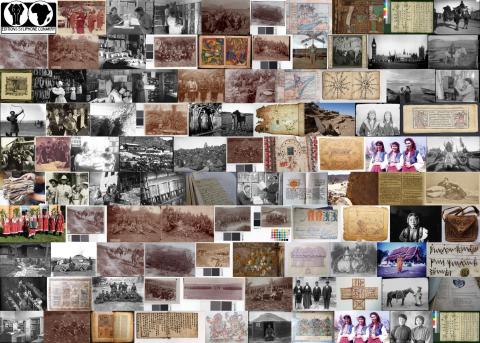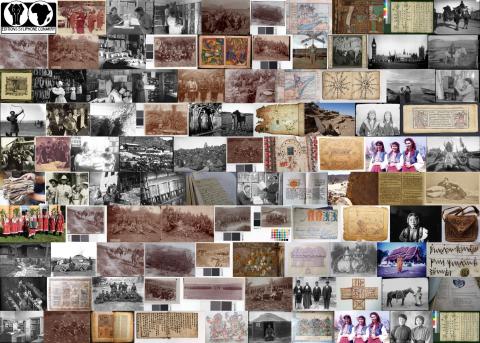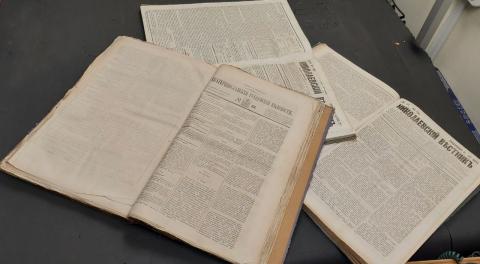
Aims and objectives
The traditional rural society of Southern Ukraine from the second half of the 18th to the first half of the 19th century was a unique part of the Ukrainian society. It was formed by different ethnic and religious social groups - amongst them former Zaporozhian Cossacks, settlers from the northern regions of Ukraine, Russian dissenters moved from the central regions of the Russian Empire, Bulgarians, Albanians and Gagauses, escaped from the Tartar threat, Greeks, Armenians, Germans and Poles. When living in the conditions of the Southern Steppe on the border of settled territories and steppe, representatives of these groups tried to preserve their traditional culture, which became the main factor of self-identification. At the same time, in spite of the heterogeneity and mixed character of settlers of the Ukrainian Steppe, the peasant community started to consolidate. The main factor of this social consolidation was the frontier nature of the Ukrainian Steppe region, facing permanent threats and challenges, cruel necessities just to live, to respond to economical, natural and military threats. The fact that during the 19th to the beginning of the 20th century the Ukrainian Steppe turned into the granary of Eastern Europe and the Russian Empire was evidence of the effectiveness and stableness of the social and economical model. This peculiarity was noticed by historians, ethnography researchers and linguists. Scholars from Bulgaria, Serbia, Greece, Macedonia and Croatia have a chance to study the remains of the archaic culture of those who came from the metropolis and preserved features of their original culture, which no longer exist in their country of origin.
Since the beginning of the fast development of the minerals and metallurgical industry in the region at the end of the 19th to the beginning of the 20th century the unique rural culture of the Ukrainian Steppe started to break down. The brutal actions of the Soviet Regime against the peasants, violent liquidation of the private farms in 1929 and the organisation of the artificial famine in 1933, caused the complete ruin of the traditional rural society in Ukrainian Steppe. But collective farms and appropriate organization of life in villages temporarily conserved the traditional rural culture. The decline of peasantry and deserted villages imply the loss of traditional rural culture of Ukrainian Steppe and its material evidences.
During the last 10 years the Zaporizhzhia Learned Society of Ya. Novytskyi (attached to Zaporizhzhia National University) has been working on the discovery and salvage of documents relating to these societies. As a result of 52 expeditions, organized by Zaporizhzhia Learned Society of Ya. Novytskyi, thousands of documents and material of peasant origin have been collected. This material needs to be researched and to be stored in appropriate conditions. Until now, many unique collections are in the families of peasants' descendants and in the former soviet institutions. They are generally stored in bad condition and under threat of being completely lost.
Rural people's memoirs and diaries. This collection is a great demonstration of a pre-industrial society. During the 1997-2006 archeographic expedition of the Zaporizhzhia Learned Society on the territory of Steppe (South and South-East) Ukraine , collections of more than 50 memoirs were found. Some of them were written during 19th and at the beginning of the 20th century by several generations of authors, other memoirs were generalized by the family members in the first part of the 20th century. Such memoirs and diaries have thousands of pages. A great number of the collections are in the hands of heirs who didn't agree to pass the original material to the archives. So copying of such materials is an urgent problem.
Rural people's family archives. This is a collection of different materials amongst which a major part are peasants' letters, notes, official records, photographs. Due to the field expeditions more than 123 family archives are already stored in the Zaporizhzhia Learned Society. But it is a small part of the rural collections. The problem is that the owners of such collections are mainly old people and very often after their death unique documents are lost. That is why further expeditions for collecting and copying of the already discovered family archives would preserve them for the future generations.
Audio records. In 1994-2006 more than 2,700 peasants of South and South-East Ukraine were interviewed - Ukrainians, Russians, Crimean Tatars, Bulgarians, Albanians, Gagauses born during the years1885-1925 year of birth. The results of those oral expeditions were stored on tapes, and now they are under the danger of demagnetization. Around 10,000 tapes now are stored in inappropriate conditions in the Zaporizhzhia Learned Society and may soon be lost.
Outcomes
The records copied by this project have been catalogued as:
- EAP164/1 Preservation, storage and accessibility for archives of the pre-industrial rural society of the Ukrainian Steppe
Due to the cyber-attack on the British Library in October 2023, the archives and manuscripts database is currently inaccessible and we are unable to provide links to the catalogue records for this project.




